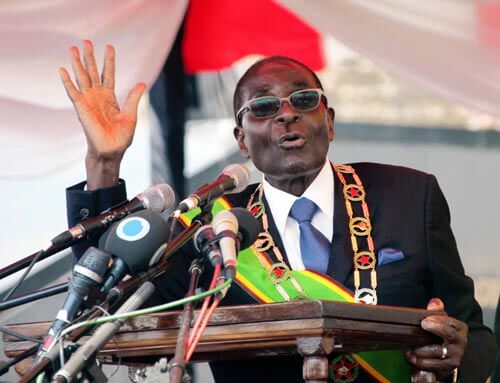KINGSTON, Jamaica (AP) _ Jamaican police have often been viewed with suspicion and fear, routinely accused of indiscriminately using their weapons and intentionally killing suspects as the island struggled with soaring violent crime.
Now, with overall violence ebbing, the Caribbean country is on track to have the fewest deaths at the hands of law enforcement in years, drawing cautious praise from human rights activists and making officers more welcome in some of Jamaica’s grittiest districts.
The number of citizens killed by police is expected to reach just over 100 this year, far below the 258 slain last year by security forces. The annual total of police killings hasn’t been below 200 since 2004.
Police always used to come with guns cocked, but more of them are calmer now and have a better attitude,’’ said Susan Ramsay, a mother of three in the rough east Kingston neighborhood of Rockfort. It’s gotten to the point where I prefer seeing the police around here than not seeing them.’’
There seems to be a mix of reasons for the reduction, but perhaps the biggest is a new-found fear among officers of prosecution by an independent agency that investigates allegations against police.
The Independent Commission of Investigations was created in 2010 after security forces killed 70 civilians in Kingston during an operation to capture a fugitive gang leader. Police had disputed the agency’s authority, but last year the courts ruled it has the right to arrest and charge officers, previously the role of an internal police bureau and public prosecutors.
The increasingly robust commission is now advancing high-profile investigations against lawmen, including a probe of 11 officers in a single police division in the central parish of Clarendon. After those officers were hit with murder charges earlier this year, a big drop in police-related fatalities followed across Jamaica. There also were two successful convictions this year of police personnel who failed to cooperate with commission investigators.
A clear message is being sent that all police killings are being rigorously investigated and that the Jamaica Constabulary Force must cooperate fully,’’ said Robin Guittard, Caribbean campaigner at Amnesty International.
Hamish Campbell, a former Scotland Yard commander who is the investigative agency’s deputy commissioner, said reducing fatal shootings has been helped by a significant drop in early morning raids. Heavily armed and often masked officers would roll into slums before dawn on raids that frequently ended in bloodshed, though police went unscathed.
The tactic was not tenable and the greater majority of the public recognized it for what it really was,’’ Campbell said.
Rights groups long accused the government of fostering a culture of impunity by protecting law enforcers accused of killing suspects rather than subjecting them to the backlogged, inefficient court system. Activists are now cautiously hopeful the tide might be starting to turn.
The total figure is still far too high, although the current trend may result in one of the lowest annual numbers of police killings in Jamaica in decades,’’ said Jamaicans for Justice, the island’s most prominent rights group.
By comparison, Chicago police fatally shot 13 people last year, and the U.S. city has roughly the same population as Jamaica, 2.7 million.
The 11,000-member Jamaica Constabulary Force attributes the drop in police-caused fatalities to improved management and increased training on the use of force and respect for human rights.
Officials also cite the behavior of suspects. We have been seeing an increased trend of criminals using less confrontational measures in dealing with the police as they have chosen the option of surrendering in light of several public appeals,’’ said Assistant Police Superintendent Tanisha Ellison.
The U.S., which has seen widespread protests related to the death of African-American suspects at the hands of police, recently donated pepper spray, retractable batons and other equipment to help Jamaican officers disable suspects without fatalities.
While violent crime is down, it’s still very high, with the U.N. listing the island as having the world’s sixth worst homicide rate. Awash with illegal guns, Jamaica reported 1,197 homicides by citizens in 2013, down from a high of 1,680 in 2009.
Another key in sustaining the downtrend in police killings is ensuring Jamaica’s justice system follows through with trials. There have been more than 2,000 fatal shootings by police over the last decade, but few ever made it to court, with only a handful of convictions. Almost all those fatally shot by officers were once written off as armed criminals who died in shootouts, no matter how much slum dwellers insisted police were shooting to kill.
Police say they are striving to change hearts and minds. Members of the force’s management say they are committed to punishing rogue officers and improving relationships with citizens.
We’re doing our best. We know the police and the community have to have a good relationship,’’ Sgt. Wickham Campbell said recently, after a friendly chat with men hanging out on a street corner in a Kingston slum that has struggled with extortion gangs.
David McFadden on Twitter: twitter.com/dmcfadd




















